#Teddy Bergman
Text
The Rise and Fall of ‘KPOP’

Why is this groundbreaking Broadway musical closing so soon? The tale of its creation, evolution, marketing, and critical reception offers plenty of clues—and some glimmers of hope.
BY MARCUS SCOTT
KPOP will play its final Broadway performance this Sunday, Dec. 11, after 44 previews and 17 performances (during previews, the show canceled multiple matinee performances and one of the leads got COVID, prompting producers to move its official opening night to Nov. 27, one week after its initial opening celebration). This makes this historic musical the shortest-running Broadway musical since Neil Bartram’s The Story of My Life shuttered after 19 performances in 2009.
Cancellations and delays have become commonplace as Broadway rebounds from a pandemic and a global quarantine that affected all live gatherings, but theatre in particular. The closure and slow return has had a major impact on Broadway, with 2021-22 revenue and attendance taking major hits, falling from the historic record of $1.829 billion set by the 2018-19 season to the total of $845.4 million last season. These statistics by the Broadway League indicate a plunge of 54 percent, marking a drop in audience attendance, which saw a record high of 14.7 million in 2019 but fell to 6.72 million this past year. Shows like the long-running Phantom of the Opera and A Strange Loop—an artistic triumph which won the Pulitzer Prize for Drama and earned the Tony Award for Best musical at this year’s ceremony—will end their respective runs on Broadway early next year. Even Stomp, the Off-Broadway percussion-and-movement mainstay, is set to end its 29-year run at the Orpheum Theatre next month.
One might surmise that KPOP, a pop musical penned and composed by three hip yet largely unknown theatre artists, was in part a casualty of some of these seismic forces. But the story isn’t that simple. Like many shows, it faced delays and cancellations due to COVID, but ticket sales were markedly anemic throughout the show’s preview period, leading many to point fingers at the show’s faulty marketing efforts to attract younger audiences and fans of the increasingly popular Korean music genre that gives the show its title.
And then there was the question of the show’s critical reception, which was decidedly mixed. Most reviews weren’t positive, with at least one major exception (Variety posted a rave), but it didn’t help that The New York Times’s Jesse Green had nothing nice to say about the show, comparing it unfavorably to KPOP’s 2017 Off-Broadway staging and writing that “those who aren’t hard-core fans of the genre or don’t understand Korean” would probably not enjoy the show (a bizarre appraisal, considering the show is performed primarily in English, with occasional Korean lyrics and dialogue, and with its Playbill making history as the first to be bilingual). Green also received criticism for referring to Jiyoun Chang’s million-dollar kilowatt lighting designs as “squint-inducing,” an unfortunate word choice that led many to perceive his review as racist, even if unwittingly so; producers and cast members went so far as to ask Green and the Times for an apology, though none was forthcoming.
Naturally, when news broke that the show would end its run just two weeks after its official opening, the theatre community went into an uproar about what went wrong with a show that so many—and not just those involved in its making— thought deserved a better chance to find an audience.
“Globally, this is a case of how the status quo of Broadway marketing (run by predominantly white people) fails to lift up projects attempting to bring new diverse audiences to Broadway,” wrote associate director Seonjae Kim via e-mail.
How did KPOP arrive at this crossroads? Just before Thanksgiving and the show’s postponed opening night, I spoke with members of the creative team. The behind-the-scenes story of this groundbreaking musical is a tale of intense collaboration, evolving perceptions and intentions, and a lot of creative tinkering. Just as KPOP deserved a longer run, this story ought to be told.
Blast Off
On a mid-November afternoon, when I finally got in touch with composer Helen Park, she was holed up in the lower lobby of the Circle in the Square Theatre between rehearsals, surrounded by a wall of placards and production photos taken at the venue over its celebrated 50-year history. Connecting over FaceTime, our initial hellos were a bit klutzy. It’s not every day you’re tasked with interviewing a friend, after all: Park and I both attended New York University’s Tisch School of the Arts, where we enrolled into the Graduate Musical Theatre Writing Program in 2011. There we spent two years finessing our craft, fidgeting with our skill sets, and finding our voices. Similar to my own experience, Park faced and fought the stereotypes and preconceptions of patronizing elders in the musical theatre field. She’s a global citizen woman of color who writes radio-friendly ditties with an effervescent pop sheen, in the face of a post-Sondheim white cis-het male-dominated industry; I’m a lower-middle-class Black poet and journalist-turned-librettist-songwriter who had more in common with the security guards manning the entrances than the trustafarian hipsters and preppies who frequented the campus.
Park handled it all like a boss, probably because she has a knack for proving others wrong. At the age of 5 in Busan, Korea, she began playing classical piano, learning Schubert, Chopin, and Rachmaninoff. At age 9, her father’s studies brought her to Missouri for two years, where she played state-level competitions. In sixth grade, she attended a musical theatre summer school in Virginia, cementing her love of the craft with a production of Mary Rodgers’s musical comedy Once Upon a Mattress. After attending middle school back in her native Korea, she convinced her parents to send her more than 7,000 miles away to a Christian conservative boarding school in Alberta, Canada, where she would spend her high school years listening to ’90s and early-2000s Korean pop ballads as a source of comfort and connection. After a stint studying life sciences, she moved to the Big Apple, where she befriended co-lyricist and co-composer Max Vernon.
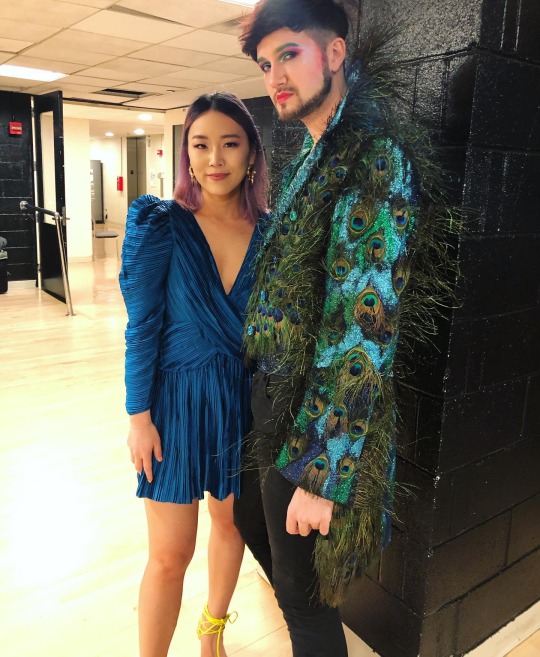
Vernon and Park’s collaborations began in graduate school, when a joint assignment led to The Lament of Asian Girl #3, a satirical romp about stereotypes and casual racism in the film and theatre industries. Park told me she really responded to Vernon’s lyrical style, describing it as edgy, fresh, and singular. In 2014, Park was approached by Vernon, who was already in talks with Ars Nova about developing a musical about K-pop; Vernon introduced her to director Teddy Bergman of Woodshed Collective, as well as co-conceiver and librettist Jason Kim. She then partook in a sort of bake-off developmental workshop, alongside AAPI storyteller A. Rey Pamatmat, playwright Jeremy Lloyd, and the songwriting team of Maggie-Kate Coleman and Erato A. Kremmyda.
“We were experimenting with having many different composers write this score,” said Park, who music-directed and contributed two songs to that initial workshop. “But we all felt there needed to be cohesiveness to the score, because they were all so different from each other. So Max and I became a team from there.”
Bergman described the origin of KPOP as an “arranged marriage” orchestrated by Ars Nova, with artistic director Jason Eagan and former associate artistic director Emily Shooltz bringing together a team to explore an immersive show set in the K-pop universe. Little did he know that Kim and Vernon, members of Ars Nova’s Uncharted program, had already been ruminating on the same subject. After a successful series of workshops in 2016, Ars Nova greenlit the musical for a limited engagement.
Meant 2 Be
For those who saw the 2017 production, including many critics, the new Broadway version of KPOP feels more like a reinvention than a reboot—a spiritual successor from an alternative timeline or fictional metaverse, if you will. Performed in the expansive A.R.T./New York Theatres space, the Off-Broadway production divided audience members into groups who were given a tour of JTM Entertainment, a fictional K-pop music factory owned by South Korean power couple Moon (played by James Saito) and his wife Ruby (Vanessa Kai), hoping to break into the North American market with their brand of infectious pop. Tapping the San Diego-born Korean American agent Jerry (James Seol), they strategized to tip the scales in their favor, plotting world domination with their contagious confection of earworms.
Theatregoers who toured the multilevel, multiroom facility were then introduced to the five-member boy band F8, the six-singer girl group Special K, and Seoul’s reigning glitterball prima donna, MwE (Ashley Park, in a star turn before her Tony-nominated performance as Gretchen Wieners in Mean Girls). They also met the company’s toxic in-house plastic surgeon Dr. Park (David Shih), ferociously vicious vocal coach Yazmeen (Amanda Morton), and ruthless dance instructor Jenn (Ebony Williams, last seen as a backup dancer on Beyonce’s Formation tour and best remembered for the “Single Ladies” music video).
Onlookers observed as the JTM artists were put through the wringer: Required to participate in mandatory rehearsals to flawlessly execute physically demanding vocal and dance exercises, they were also expected to workshop and generate new recorded material around the clock, to cultivate their fickle fandom via social media, to receive media training, and to confront their body dysmorphia via a rhinoplasty examination for any facial imperfections. And this summary barely scratches the surface of a show that also addressed themes of xenophobia, racism, and child labor.

Audiences, and most critics, relished the soap opera-esque storytelling, with larger-than-life Asian performers playing multi-dimensional protagonists rather than sidekicks or tertiary tropes. That iteration of KPOP would go on to become the most nominated show of the 2017-18 theatrical season, taking home the Lortel Award for Outstanding Musical, a Richard Rodgers Award, and an Off-Broadway Alliance Award for Unique Theatrical Experience, while earning multiple nominations for both the Drama Desk Awards and Drama League Awards.
Even before the show received these plaudits, a Broadway transfer seemed imminent, with lines trailing down city blocks and theatregoers cosplaying as characters from the show. Yet no one could predict the trajectory of pop culture, or of Broadway, within the demi-decade to come, and that’s where things get tricky.
Super Star
Five years later, there’s no denying that K-pop has found a home in the land of Stars and Stripes. Just ask the legions of superfans backing radio leviathans like Blackpink (the highest-charting K-pop girl group on the Billboard Hot 100 and Billboard 200), Seventeen (the first K-pop group to be nominated and win the MTV Push Performance of the Year), Girls’ Generation (recent Guinness World Records holders), SuperM (the first Asian artists to top the chart with a debut release) and BTS (the first act to have six consecutive No. 1 singles on the Hot 100 in the shortest amount of time since The Beatles), to name a few. While there has yet to be a singular crossover superstar equivalent to the likes of Lizzo, Billie Eilish, Anitta, Doja Cat, or Olivia Rodrigo, it is only a matter of time before K-Pop produces its own international superstar. Blackpink’s Lisa, who was recently honored at the 2022 Video Music Awards for Best K-Pop for her solo single “Lalisa,” could be a contender.
KPOP director Teddy Bergman recalled a sold-out BTS concert at MetLife Stadium in 2019, marveling at “the umbrella of who was in that crowd, not only AAPI audience members, but just a wildly diverse audience base there, singing along to songs in Korean.” Bergman, the son of first-generation German Jewish refugees, added, “Seeing that radical expansion brings up questions of, when the tent of your music gets so large, what piece are you holding onto? Like, is there a question of the dilution of the form as you’re spreading it further and further and you’re reaching a wider audience?”
Among other things, such rapid development in the cultural milieu meant that the writers would have to update their references. Vernon said that when the show was initially conceived, the creative team was influenced by an earlier generation of K-pop stars: Wonder Girls, Girls’ Generation, SHINee, 2NE1, Big Bang, Exo, Psy. By the time the show was headed to Broadway, the songwriting team had turned their ears to a new generation: BTS, Blackpink, NCT 127, Seventeen, New Jeans, Monsta X, and Vernon’s personal favorite, Lee Tae-min of Shinee and the supergroup SuperM. For her part, Park name-checked inspirations as wide-ranging as You Hee-yeol of the one-man band Toy, R&B music icon Stevie Wonder, global music megastar Michael Jackson, jazz, and ’90s sentimental pop ballads.
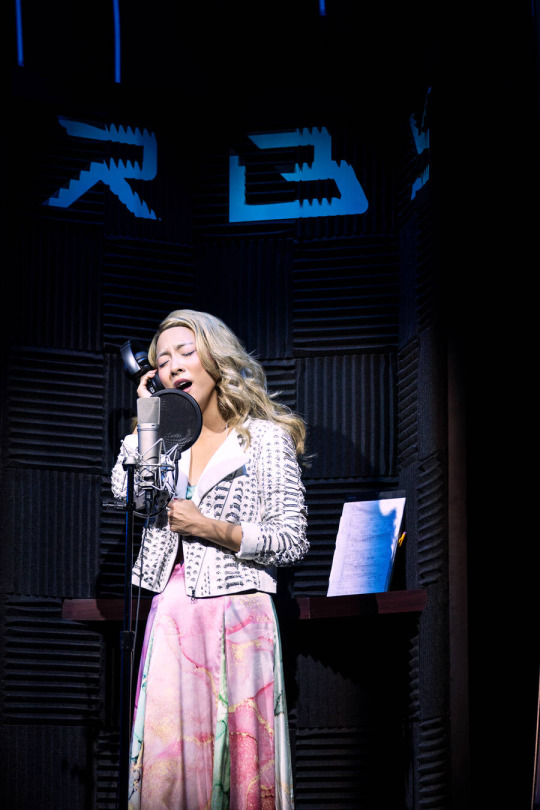
Changing perceptions of K-pop would also demand a different focus for the show: The burning question for the KPOP characters this time around wouldn’t be whether these acts would go mainstream, but rather what they would be forced to sacrifice in that crossover: their identity, as they assimilate into the global market, or their autonomy and individuality as they reach the upper echelons of fame?
The other big challenges of the Broadway transfer were scale and form: Not only were none of the 41 Broadway theatres equipped to present an immersive experience of the kind the previous KPOP had, but, as book writer Jason Kim wrote in an email, the original script “was over 500 pages. We had to include so much content to fill every corner of every room in the building. Cutting out parts of the story happened by necessity, but we also embraced it as an opportunity to distill the story down to its most essential points.”
The result that’s currently at Broadway’s intimate Circle in the Square features an 18-member cast and four swings, including real-life K-pop idols Kevin Woo (of boy band U-KISS), Min-Young Lee (of girl group Miss A), and Bohyung Kim (of girl group Spica and music duo Keembo), not to mention Korean multimedia singer-star Luna. Audiences are on hand to observe rehearsals for a one-night-only concert affair to be presented by a K-pop corporation called RBY Entertainment, which is looking to introduce their roster to America. K-pop impresario and momager Ruby (an attention-grabbing Jully Lee) is hedging her bets with three of them: the newly formed RTMIS (pronounced Artemis), the riveting F8 (pronounced fate), and her muse and prima donna of the dancefloor MwE (pronounced mu-wee), an orphan Ruby has personally raised for fame. The show’s form now resembles a combination of early-aughts VH1-style Behind the Music docudrama and memory play, telling the story of MwE’s road to superstardom through flashbacks and snapshots of her life, from her initial audition as a wide-eyed tween with big dreams and impressive pipes through the elaborate, Vox Lux-esque stage performances of her first world tour.
The new version of KPOP is in fact mostly focused on MwE and her struggles for independence, artistic freedom, individuality, work-life balance, and childhood trauma. While stage time in the 2017 production was evenly distributed, the stories of the other bands have been significantly if necessarily streamlined: Special K has been whittled down to the five-member RTMIS, though F8 has expanded from five to eight members. (And gone is MwE’s supposed younger shadow self, waiting in the wings to dethrone her.) Instead the new script introduces Juny, MwE’s guitar-plucking, golden-voiced boyfriend, who is intent on rescuing her from her gilded cage (played by a delightful Jinwoo Jung, seen in KPOP Off-Broadway as F8 member Oracle). Recording the spectacle is fame-hungry documentary filmmaker Harry (played by Aubie Merrylees, in a thankless part), who wants to turn the concert and its behind-the-scenes drama into a vehicle that will land him recognition and awards on the festival circuit.
On paper, this all sounds fine. But when one makes comparisons to that edgy original Off-Broadway production, the trials and tribulations faced by the RBY artists in the Broadway production come across as champagne problems. In the original production, the F8 segment focused on the cultural divide between South Korea and the U.S.; the Special K segment focused on the intersection of racism and sexism with regard to the unrealistic expectations of perfection; and the MwE segment interrogated the commodification of child stars. On Broadway, only the latter concern is truly explored in depth, while the challenges facing F8 are merely glimpsed and the RTMIS story is virtually non-existent.
There’s also the difference between Jerry and Harry. In the 2017 script, Jerry was a Korean American who had bought into respectability politics and the model minority myth, and was enforcing assimilation and cultural agility on the talent under his care. Jerry wasn’t a simple villain, as at the climax he realized his error and faced his internalized racism. But in the new script, Harry is little more than a stand-in for the exploitative, imperalist white gaze, demanding that the biracial, people-pleasing Brad (Zachary Noah Piser) translate what the other boy band members are saying in Korean in return for a stronger spotlight in the documentary.
Songwriter Vernon explained these choices in part as a result of the sea change in K-pop’s popularity.
“When we started writing almost nine years ago, it was about whether or not K-pop could transfer and cross over to an American pop market, and we were asking ourselves questions of what would the sacrifices those artists would have to make in terms of their own personal and cultural identity to appeal to American audiences,” Vernon told me during a break from rehearsal for their show The Tattooed Lady, which ran just before KPOP‘s opening at the Philadelphia Theatre Company. “I think one of our main assumptions was that there would have to be a much greater cultural sacrifice, so we had this character of Jerry, this American consultant who was encouraging the K-pop artist to do things that were in many ways harmful to who they were, hiding who they were in order to appeal to America. At the end of the show, the realization was that actually the best way to appeal to America is just that the K-pop artists be fully themselves; they don’t need to cross over to us, we need to cross over to them. In 2017, that was a really powerful message, but since we did the show, K-pop has crossed over.”
Added Park, “Through the pandemic, there was this reckoning. Asian Americans and people of color started grappling with their own identity; it was so important to us to honor as much authenticity as we can for K-pop and Korean pop culture, so our focus kind of shifted, which meant the story had to change. Instead of asking, why hasn’t K-pop crossed over into the U.S., we started to go into what is the experience of being a K-pop star? What is the joy and exhilaration, but also the sacrifice?”
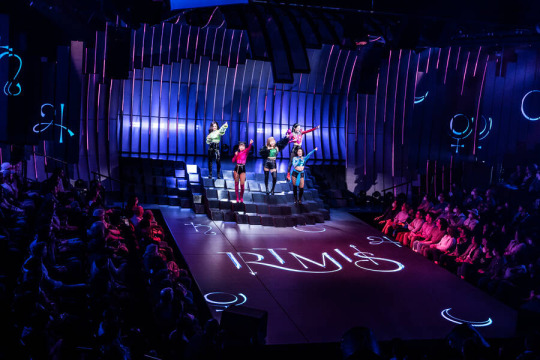
Still, without the animating drama of crossover, audiences for the new KPOP—both K-pop diehards and the uninitiated—may be confused about what they are supposed to take away from the show. Here’s where the critiques of Jesse Green and others, however pointed or problematic, aren’t totally unfounded. By making such changes, one could argue that the KPOP team turned one of the most singular, innovative, and genre-bending triptych theatrical productions of the last 25 years into one of the most traditional, bare-bones, and sanitized productions of the post-pandemic era. Instead of showing the rot beneath the sparkling ruby, this version of KPOP only covers it up with more precious gems; the sharp, subversive edges of the original were dulled and smoothed down or completely obscured, and the darker extremities explored in 2017 trimmed away.
I think the creative team made the incorrect assumption that because K-pop has exploded in the U.S., Americans are likewise familiar with South Korean customs and culture, which couldn’t be further from the truth. You would never guess from KPOP that South Korea has one of the highest suicide rates among OECD member nations, with a 2016 study finding that 30 percent of South Koreans suffer from mental illness, though only half seek treatment. Or that in the last five years, there have been a string of notable suicides in the Seoul music industry, including songwriter-producer Kim Jonghyun of Shinee, barrier-breaking industry rebel Sulli of f(x), and actress-singer Goo Hara of Kara. Imagine the power of a script in which the animosity between F8 members and hapa newcomer Brad arose in part because the band member he replaced had committed an act of self-harm instead of simply being mysteriously fired. Or, given K-pop’s trend of queer-baiting, its litany of “skinship” performances from acts like NU’EST, VIXX and OnlyOneOf, having an openly queer member of F8 would have certainly added nuance. Imagine what that could have done for songs like “Han Guk Nom (Korean Man)” and conversations around Asian masculinity in South Korea’s often conservative Christian society. (John Yi’s commanding, laugh-out-loud performance as F8’s smoldering Danny, for example, would be an obvious choice for this storyline.) This would not only have honored the queer artists who have penned some of the genre’s biggest hits, but the LGBTQIA+ artists who penned KPOP itself.

All of this is not to say that the new KPOP didn’t make improvements. Park Sun-young, known internationally as Luna, gives a nuanced performed as MwE, and the fact that Luna’s own career trajectory bears striking similarities to MwE’s adds a layer of meta-authenticity that wasn’t a part of the 2017 Off-Broadway run. Following a 2006 appearance on the Seoul Broadcasting System reality TV show Truth Game, Luna was scouted by the powerhouse label SM Entertainment prior to making her debut as the main vocalist and lead dancer of South Korean hipster girl group f(x), alongside Victoria, Amber, Krystal, and Sulli in 2009. The quintet earned critical and commercial success domestically and internationally, becoming the first K-pop act to perform at SXSW. And with her role in KPOP, Luna is the first K-pop idol to have a leading role on Broadway.
That’s not the only historic first marked by KPOP: It’s also the first Korean-centric musical with Korean, Korean American, and AAPI representation (on- and offstage) to grace the Great White Way, and only the third Broadway musical to highlight Asian American heritage with Asian Americans in both the cast and the creative team. Helen Park makes history as the first Asian American woman composer of a Broadway musical, and only the sixth Asian composer ever. And Luna isn’t the only one making her Broadway debut; so is almost the entire cast (Zachary Noah Piser, Eddy Lee, Major Curda, and Aubie Merrylees are the exceptions). That places a lot of undue pressure on a show like this, leaving little room for error—ironic for a show about artists striving for perfection.
Phoenix
So why is the show closing? A sentiment shared among industry observers and theatregoers is that the marketing team backing KPOP just didn’t make enough of an effort to target contemporary enthusiasts of the K-pop genre. The producers seem to have hoped those fans would be attracted by the K-pop recording stars in the cast, but there’s a fallacy in this logic: The idol industry cycles through performers cursorily, so that there’s not enough collective memory for that to translate to tickets sales or merchandise (another theme and plot point in the original Off-Broadway production that is all but absent this time around).
“There are a myriad of complicated reasons why KPOP is closing its doors prematurely,” wrote associate director Seonjae Kim in an email. “But in my opinion, a big one is the marketing and outreach. Our social media endeavors were essentially non-existent until it was way too late in the game to build buzz. Many posts were low-effort and failed to utilize even the most basic of algorithm principles (like using hashtags). There are many accounts of cast and team members reaching out with impressive personal connections and promotional opportunities that went unanswered. In my opinion, there was zero strategy and innovation on how to market this incredibly non-traditional show to non-traditional audiences.
She continued, “Amidst the sadness, it’s been a real pleasure to see to see that our houses do not look like a typical Broadway-going audience: so many young folks, AAPI folks, folks carrying signs for their favorite K-pop star in the show. From their enthusiasm, and the fervent energy of the social media campaign once we announced our closing, I have really come to believe we missed our opportunity to tap into the immense spending power of so many who were hungry to see something so different on Broadway. We could have and should have reached so many more of them. I hope that future shows can learn from what happened to us. I hope that how theatre is funded, marketed, and sold can catch up with the innovations of the stories being told.”
A day before the news of the closing broke, producers announced that Sony Masterworks Broadway will release a cast album of the show on Feb. 24, 2023, with record producer Harvey Mason Jr. (one half of the production duo The Underdogs), a veteran hitmaker who has been very prominent in the K-pop scene, at the helm alongside music director Sujin Kim-Ramsey. The show’s blend of power ballads, reggaetón, glow-in-the-dark EDM, nu-disco, progressive house, techno, hip-hop, trap, and Korean wave dance-pop should make it the most anticipated cast album of the season. It will undoubtedly introduce the show to many more folks who could see it during its short run. And who knows? It could even give KPOP a chance at a second life or a future remount, given its massive appeal to young audiences and K-pop fans. If that does happen, future producers will hopefully have learned that the show needs something more than the usual marketing approach and word-of-mouth.
For now, its creators are celebrating the moment while it lasts.
“There is something still inherently radical about this cast, these bodies, inhabiting this story, on this stage, especially out of an unbelievably difficult set of years for everyone and for everyone in very different ways,” said director Teddy Bergman from his Brooklyn apartment as he prepared for an emergency rehearsal. “There’s a tremendous amount of joy on that stage, and I think experiences of collective joy and stories of redemption and hard-won strength and release are necessary public rituals at this moment in time.”
In a new essay for Playbill, Helen Park shares a story about her own young son that demonstrates one way the show is a hit, no matter its box-office numbers.
“He told me he wanted to be in KPOP when he grows up, ‘if it still exists,’” she writes. “He might be too young to realize the significance and the rarity of this, but he saw himself represented onstage, loud and proud, flawed and complicated. He saw himself represented as fully human, on the Great White Way. That’s the moment I felt like I must have done something right.
“I see audiences like my son every night, young and old. I see how their eyes light up as they see themselves represented in the form of superstars. Perhaps for some of them, they’re superheroes.”
Marcus Scott is a New York-based playwright, musical writer, and journalist. He’s written for Architectural Digest, Time Out New York, The Brooklyn Rail, Elle, Essence, Out, and Playbill, among other publications.
The article originally misstated the timing and source of quotes from Seonjae Kim. It failed to mention that a lead getting COVID was a factor in the postponement of opening night, and it also stated incorrectly that the entire cast is making their Broadway debut.
#Marcus Scott#MarcusScott#American Theatre Magazine#KPOP#KPOP musical#Broadway#Off Broadway#Max Vernon#Helen Park#Jason Kim#Teddy Bergman#Seonjae Kim#LUNA#fx#Kevin Woo#ukiss#kpop broadway
0 notes
Text
Broadway's KPOP Astonishes on the Surface, But Fails to Dig Deep.
#frontmezzjunkies reviews; #BroadwayMusical #KPOP
conceived by #WoodshedCollective & book writer #JasonKim
music/lyrics/music production: #HelenPark
music/lyrics: #MaxVernon
direction: #TeddyBergman
choreo: #JenniferWeber
w/ #Luna #JullyLee #KevinWoo
Luna in Broadway’s KPOP. photo by Matthew Murphy & Evan Zimmerman.
The Broadway Theatre Review: KPOP
By Ross
As they set themselves up, KPOP the new musical comes floating forward on a black stepped thrust, selling itself like a prettily packaged product ready for consumption by the eager young masses filling the auditorium. I know I’m not the target audience member, like many that surround…
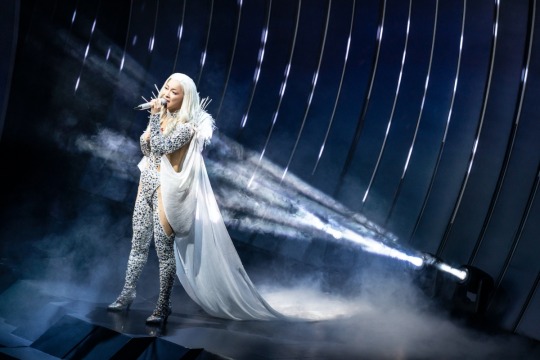
View On WordPress
0 notes
Text
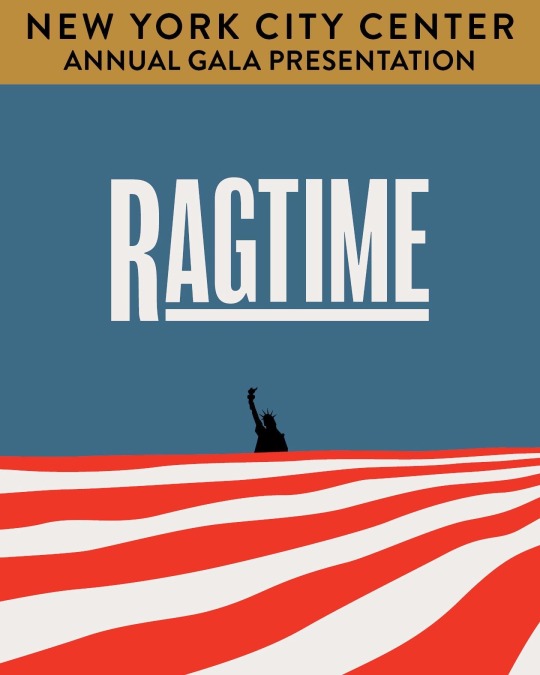
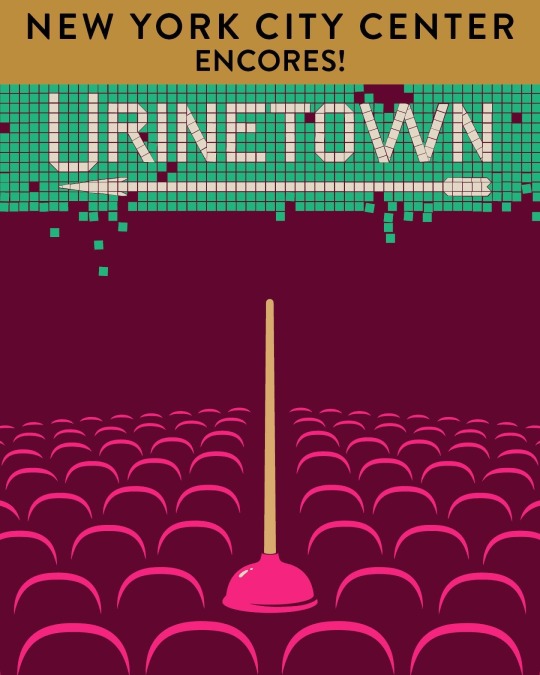
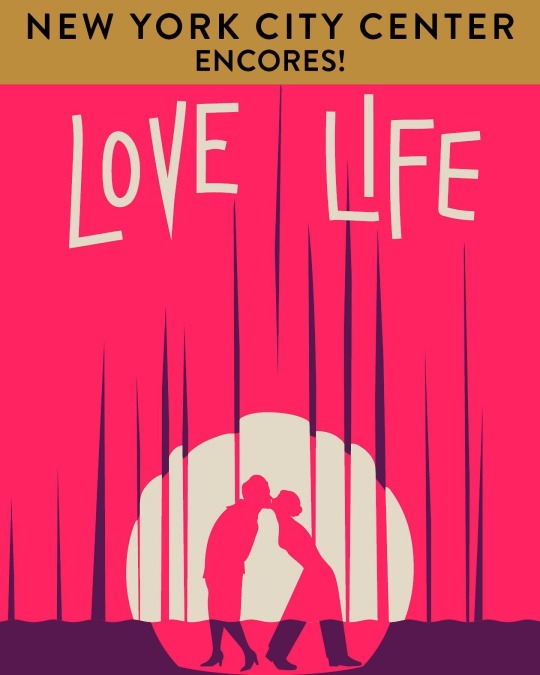

New York City Center 2024/2025 Season:
Annual Gala Presentation
RAGTIME - Oct 30 – Nov 10, 2024
RAGTIME is a sweeping, powerful musical with music by Stephen Flaherty, lyrics by Lynn Ahrens, and a book by Terrence McNally that follows three fictional families in pursuit of the American Dream at the turn of the 20th century.
This gala production is led by Tony-nominated Encores! Artistic Director Lear deBessonet and features Joshua Henry (Coalhouse Walker Jr.), Caissie Levy (Mother), and Brandon Uranowitz (Tateh).
Encores!
URINETOWN - Feb 5 – 16, 2025
In this side-splitting satire directed by Teddy Bergman (KPOP), a young hero fights to create change in a dystopian world where water is scarce and “Hope” is even scarcer. This three-time Tony-winning musical by Mark Hollmann and Greg Kotis breaks the fourth wall to examine humanity’s darkest dilemmas, all while being “audacious and exhilarating” (The New York Times).
LOVE LIFE - Mar 26 – 30, 2025
LOVE LIFE the only collaboration between Kurt Weill and Alan Jay Lerner, depicts a love story that takes place over 200 years of American history, through the eyes of a family who never ages. This rarely staged production directed by Tony winner Victoria Clark (KIMBERLY AKIMBO) is considered by some to be the first concept musical, an inspiration for musical theater favorites such as CABARET, CHICAGO, and COMPANY.
THE WILD PARTY - Apr 30 – May 11, 2025
Directed by Saheem Ali (FAT HAM), THE WILD PARTY is a jazz-age tragedy about a gin-soaked party. What happens when a night of debauchery leads to a morning of sobering truths? Michael John LaChiusa (THE GARDENS OF ANUNCIA) and George C. Wolfe (JELLY’S LAST JAM) bring Joseph Moncure March’s notorious narrative poem to life in their “dangerous, seedy, fantastic” (The Observer) musical adaptation.
(x)
#mom holy shit#joshua henry#cassie levy#brandon uranowitz#ragtime#urinetown#love life#the wild party#lachiusa the wild party#musical#musicals#broadway#off-broadway#new york city center#posted
22 notes
·
View notes
Text
The 2024-2025 New York City Center season has been announced!
The season begins with Ragtime (October 30-November 10): starring Joshua Henry, Caissie Levy, and Brandon Uranowitz. Lear deBessonet directs.
The three 2025 Encores! presentations are:
Urinetown directed by Teddy Bergman (February 5–16)
Love Life directed by Victoria Clark (March 26-30)
LaChiusa’s The Wild Party directed by Saheem Ali (April 30–May 11)
19 notes
·
View notes
Text
ENCORES! 2025 SEASON ANNOUNCED
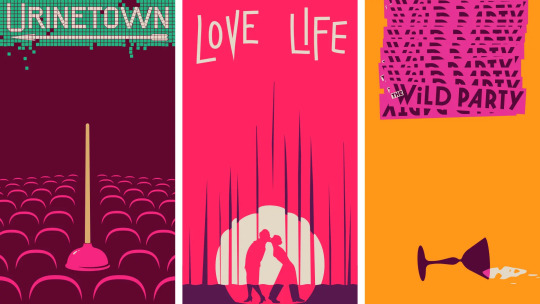
ENCORES! URINETOWN
FEB 5 – 16, 2025
In this side-splitting satire directed by Teddy Bergman (KPOP), a young hero fights to create change in a dystopian world where water is scarce and “Hope” is even scarcer. This three-time Tony-winning musical by Mark Hollmann and Greg Kotis breaks the fourth wall to examine humanity’s darkest dilemmas, all while being “audacious and exhilarating” (The New York Times).
ENCORES! LOVE LIFE
MAR 26 – 30, 2025
Love Life, the only collaboration between Kurt Weill and Alan Jay Lerner, depicts a love story that takes place over 200 years of American history, through the eyes of a family who never ages. This rarely staged production directed by Tony winner Victoria Clark (Kimberly Akimbo) is considered by some to be the first concept musical, an inspiration for musical theater favorites such as Cabaret, Chicago, and Company.
ENCORES! THE WILD PARTY
APR 30 – MAY 11, 2025
Directed by Saheem Ali (Fat Ham), The Wild Party is a jazz-age tragedy about a gin-soaked party. What happens when a night of debauchery leads to a morning of sobering truths? Michael John LaChiusa (The Gardens of Anuncia) and George C. Wolfe (Jelly’s Last Jam) bring Joseph Moncure March’s notorious narrative poem to life in their "dangerous, seedy, fantastic” (The Observer) musical adaptation.

ANNUAL GALA PRESENTATION
RAGTIME
OCT 30 – NOV 10, 2024
Ragtime is a sweeping, powerful musical with music by Stephen Flaherty, lyrics by Lynn Ahrens, and a book by Terrence McNally that follows three fictional families in pursuit of the American Dream at the turn of the 20th century. This gala production is led by Tony-nominated Encores! Artistic Director Lear deBessonet and features Joshua Henry (Coalhouse Walker Jr.), Caissie Levy (Mother), and Brandon Uranowitz (Tateh).
#encores#new york city center#VICKI CLARK DIRECTOR I AM SO HAPPY FOR HER AND FOR ME#OH THIS IS THE SEASON I HAVE BEEN WAITING FOR
15 notes
·
View notes
Text
What do we know about Life And Trust?
last updated 6 June 2024
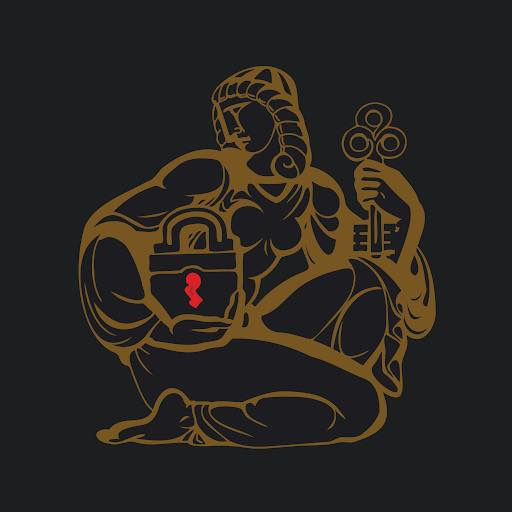
Life and Trust is a new show in New York City from Emursive - the producers of Sleep No More. Punchdrunk, the creative team of Sleep No More from whom Emursive license SNM, are not involved.
Official website: https://lifeandtrustnyc.com/
Tickets are currently on sale for 17 June - 4 August 2024.
The show is dark on Tuesdays, and weekdays have evening shows and Saturday & Sunday have an evening and a matinee.
The venue is variously referred to as 20 Exchange Place, 69 Beaver Street, 6 Hanover Street, Conwell Tower.
It is a mostly residential skyscraper with a long history, including indeed formerly being home to a bank. The show will be taking place on the basement/sub-cellar floors.
6 Hanover Street is the home of Conwell Coffee Hall https://conwellcoffeehall.com/ a cafe which is connected to the show. There is a gorgeous mural which may contain hints to the show lore.
The show is inspired by Faust. "Experience a tale of money, sex, and power in the heart of the Financial District."
It has been in production for many years, since pre-pandemic.
The show will have dancers.
Directed by Teddy Bergman, choreography by the Kuperman Brothers, with Casting and Movement Director Stefanie Batten Bland.
Other SNM cast are rumoured to be involved but this is not confirmed.
The cast list is now online and includes many SNM alums alongside many fresh new faces.
The ticket order confirmation is extremely similar to Sleep No More.
Life And Trust will use masks.
Sensible shoes are encouraged, it is likely to be free-roaming promenade like SNM
"Please be aware that Life And Trust guests may encounter scenes with nudity and depictions of violence, sexuality and intense psychological scenarios"
and
despire the scant information available... I've booked a trip to New York to go see it.
If Punchdrunk have given up on the Mask Show as a form, and other companies are going to run with it, I want to see what they do with it.
10 notes
·
View notes
Text
NSFW Headcanons for Renfield 2023 Characters
Robert Montague Renfield
I saw someone else headcanon that he has a mostly Phantom of the Opera sex playlist and God, that's so true. You're absolutely right.
more submissive type stuff:
Likes:
His hair played with
Light choking
Hand feeding
(Off) Limits:
Being told in detail what his partner is about to do to him
Pain (receiving)
Blood (weird memories yo)
Drugs
Insults
more dominant type stuff:
Usually being in restraints but it depends. Occasionally he's into it.
Biting
Picking his partner up/holding them in place
Calling his partner bug or bugbug (yeah don't think about that one too much, dude)
Rebecca Quincy
Honestly he's not particular he just enjoys being in control
Cowgirl (lol. Because of the book. Do you get it? Do you get it??)
Competence kink!!!!
Wrestling and grappling with one another
Compliments: Giving compliments and Getting compliments
Will make lots of awkward jokes to relieve the tension/anxiety
Once accidentally killed the mood by making herself laugh so hard (at a funny voice impression she did) that her wine came up through her nose.
Tedward "Teddy" Lobo
Will do a line or three (or a centipede) off of like, any body part.
Look, let's be honest we all know he has a barely-repressed Mommy kink that will surface the second he loses composure, ok?
Claims to be a dom. Is absolutely not that. 100% submissive brat.
Will attempt dirty talk but will frequently stumble over his words (when he doesn't plan them out extensively ahead of time) and then backtrack trying to correct himself.
Likes to record it so he can "prove he fucks" (??? Babe, what)
"Teasingly/knowingly" asks "do you like that?" But is absolutely not actually bragging and is genuinely unironically seeking reassurance
Carol
The type of guy who thinks the stripper/prostitute/cam worker actually likes him lmao.
He'd do pretty much anything to be called a "good boy" but he has to get over himself or just be unbearably horny to admit that instead of claiming to hate it/viewing it as an "accusation"
He has had so much unfulfilling/uncomfortable sex because he tells himself that the mild panic he feels when taking control is "exhilaration". (Exhilaration is supposed to be fun, dude)
Body painting on her partner
Tantric sex
Likes to make jokes/laugh to deflect from the vulnerability
Idk man she's really hard to get a read on honestly.
Bellafrancesca Lobo
Her partners have a habit of turning up in little pieces throughout the city dumpsters once she's done with them so like...approach with caution
Attracted to power
Mark :)
Like she's dominant but she's only attracted to other doms and then they compete to see who can keep up with eachother
Pretty vanilla tbh
Has a surprising amount of hangups
Likes sexy dancing as foreplay
Gentle
Caitlyn Bergman
Running hands over each other's faces
Generally considerate
Wants a fairytale romance (or maybe a bodice-ripper fantasy)
Attracted to witty remarks/sarcasm
Honestly still figuring out what she likes after Mitch.
Likes dressing up in sexy lingerie
Kate Quincy
Ace so nope
"Wait, people actually experience sexual attraction? That wasn't a joke?"
Bob
Surprisingly gentle and tender
Like for such a tense/angry guy he basically just wants very gentle sweet intimacy
Says a lot of reassurances
Checks in a lot to make sure his partner is ok
He's very masculine and "tough" and people tend to expect him to be the one doing all the pursuing/masculine role stuff, so little sweet romantic gestures like getting him flowers or complimenting him etc go a LONG way. Just genuinely calling him pretty without irony or sarcasm makes him blush like crazy and his heart races.
Kevin
Really likes it when his partner wears perfume. Especially something floral.
Long makeout sessions
Trevanté
Takes a long time for him to trust someone enough for anything
A bit of a showoff
Will put his hand over his partner's and guide them
Very direct communication. Will say plainly what he wants/likes and ask questions upfront.
#NSFW.#headcanons#renfield#renfield 2023#robert montague renfield#Carol (Renfield)#rebecca quincy#Mark (Renfield)#bellafrancesca lobo#tedward lobo#teddy lobo#Bob (Renfield)#Trevante (Renfield)#Kevin (Renfield)#Kate Quincy
20 notes
·
View notes
Text
Doll and Teddy Show Bonus
So I wasn't the only one who brought her doll along with me to the doll and teddy show. This girl brought her Kaya with her, and she was really beautiful! I never got to see a Kaya in person, the pictures don't do her justice. This girl was really sweet, letting me get a pic with our dolls together.
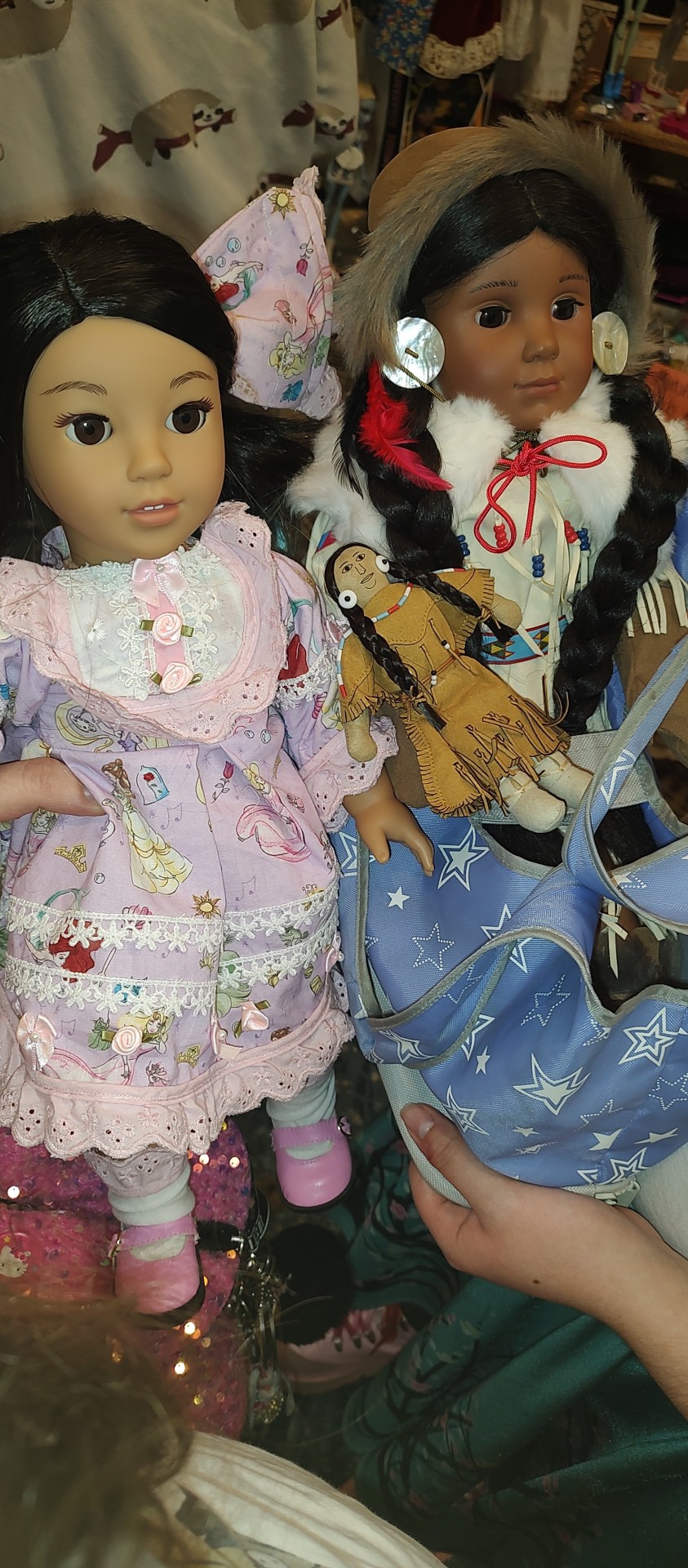
I also met a group of people my age who brought their BJD's with them, and they were all very pretty and unique. I didn't get a chance to get pictures with them though. Anyways, I did end up bringing home a new doll, one I wasn't expecting to get. The first GOTY Lindsey Bergman herself!

So I ended up getting her, and a mini Samantha, for 83 dollars altogether, and I think that was an amazing deal and was so glad to get her. Her face and hair were in good condition (her hair was messy at first, but became good once I brushed with a little braid spray, looks prettier and healthier every day), no silver eye, and very little marks on her body. She is however missing her green shirt (as why her jacket is zipped up), and her red shoes are rubbing quite a bit. As for her bag, she doesn't have her computer, but funny enough, she had her little CD ROM that said "history" (Mom got a kick out of how cute it was). I know I have a My Life As computer or two lying around, so I'll lend it to her, maybe making some cute accessories for her (maybe a 2000's style flip phone? Lol). For what I paid for her (and tiny Sam), I'm happy, and she's just so unexpectedly pretty.
Also I found out there's another doll show same location in August (seems like a semi-annual thing), so I'm gonna sew some doll dresses and set up my own booth. I got forms, and my Mom is gonna help me sell. I'm excited, and you can bet I'll be posting outfits I make.
#american girl doll#american girl#american girl kaya#girl of the year#goty#lindsey bergman#corrine tan#colleen
6 notes
·
View notes
Text
0 notes
Photo







Hailee Steinfeld (as Emily Dickinson)
Sophie Zucker (as Abby Wood)
Teddy Bergman (as Minister)
Scene from “Forbidden Fruit a Flavor Has”
From the biopic-comedy series, DICKINSON (2021)
[+] SUE & EMILY ❤
[+] ..more on DICKINSON (100+ GIFsets)
[+] ..more on FROM DICKINSON, WITH LOVE
#Dickinson#Hailee Steinfeld#Sophie Zucker#Teddy Bergman#Emily Dickinson#Emily Elizabeth Dickinson#Biography#LGBTQ#Quotes
47 notes
·
View notes
Text
Celebrating Alan Reed and "The Flintstones"
Celebrating Alan Reed and “The Flintstones”

It’s been very gratifying looking into the background of Alan Reed (Herbert Theodore Bergman, 1907-77), best remembered as the original voice of Fred Flintstone. Reed had a ton of exciting credits over and above his most famous one, and an interesting background besides.
Reed grew up in the Ft. George section of New York, and attended Columbia Journalism School before deciding to become an…
View On WordPress
#actor#Alan Reed#animated#cartoon#comedian#Fred Flintstone#movie#movies#Teddy Bergman#television#The Flintstones#tv#vaudeville#voice#voiceover
2 notes
·
View notes
Text
“Good Girls Revolt” (1ª temporada), revolución cancelada

Género: drama / feminismo
Creadora: Dana Calvo
Número de temporadas: 1 temporada (de momento cancelada)
Intérpretes recurrentes: Anna Camp, Grace Gummer, Chris Diamantopoulos, Teddy Bergman, Erin Darke, Genevieve Angelson, Hunter Parrish, Daniel Eric Gold, James Belushi, Joy Bryant,Leah Cohen, Danya LaBelle, Andy Kelso, Betty Gabriel, Michael Graziadei, Hannah Barefoot, Odelya Halevi...
A veces las revoluciones se sofocan porque alguien las aplasta, por falta de asistencia... o por una pésima organización. Algo de esto es lo que debe haber ocurrido con “Good Girls Revolt”, una serie producida por Amazon y que recientemente he podido ver, gracias a que soy Premium y a que les he pagado las facturas. De hecho, con la cantidad de mierdas que les compro a los de Amazon no me extrañaría que les hubiese producido varias temporadas de sus series, y mira, para una que me mola (aún recuerdo el sabor agridulce de “The man in the high castle”), va y resulta que la cancelan... Porque en este caso resulta que “Good Girls Revolt” sí que me ha dejado un buen sabor de boca, pero saber que no continuará, o al menos de que Amazon Studios pasa de ella, me vuelve a dejar el regusto mierdoso de otras épocas... y de otras series.

Postureando un poco
Atendiendo a lo que es la serie en sí, podría decirse que “Good Girls Revolt” es una especie de “Mad Men” pero centrado en mujeres. Corrige algunos de los abusos cometidos por la serie de Matthew Weiner, como por ejemplo estar demasiado centrado en un solo personaje (en ese caso en Don Draper), o que solo se toquen algunas temáticas (líos amorosos y sexuales), dejando de lado otros hechos importantes. Al tener “Good Girls Revolt” varias protagonistas, el punto de vista se expande y podemos ver hechos más importantes y variados, y que circundan sobre todo en la figura de la mujer en las décadas de los 60 y 70, una época de profundos cambios sociales en Estados Unidos, y que la serie representa en la redacción de una revista de actualidad, Newsweek. Allí trabajan varias investigadoras que colaboran con los periodistas en nómina, los cuales escriben y firman los artículos, aunque el trabajo sucio lo realizan ellas. La serie explora este hecho, pero también el papel de la mujer en la sociedad, cómo eran vistas ciertas conductas, cómo se entiende la política para las mujeres, y otros tantísimos temas.

Que sí, que se hizo una foto del pene y me la enseñó...
La gracia es que contar, como digo, con varias protagonistas y tan diferentes entre sí, pero unidas por el mismo cordón umbilical del desprecio a su trabajo, es lo que permite ver la dimensión de la mujer en la sociedad de aquella época. Y oiga, resulta que a día de hoy en algunos aspectos seguimos más o menos igual (¿alguien duda de la brecha salarial hombre-mujer, aunque algún machirulo frustrado la niegue?). Tenemos a una de las chicas, que es la más hippie y la menos convencional, luego a la más modosita que ve cómo su matrimonio es una farsa, o a la que juega a las apariencias pero acaba por experimentar la frustración de una vida pasada por rieles. Y no se pierde el punto de vista masculino: vemos cómo se comportan los jefes de la revista y los compañeros de las chicas, de manera que tenemos también su punto de vista, y cómo algunos de los roles que aún se arrastran a día de hoy comenzaron en aquella época, y quizá más atrás, sin que nadie se los cuestionara.

La cara que se me queda cuando alguien pide pizza con piña
Una serie fresca, entretenida, que llena los momentos y que se hace muy amena gracias a que no abusa del drama, a que tiene un carácter entretenido sin ser comedia, y que toma el trabajo en la revista como hilo conductor de la actualidad del país, algo que se agradece, y de lo que adolecía “Mad Men”, ya que lo dejaba demasiado como telón de fondo.
Una pena porque “Good Girls Revolt” ha sido cancelada, pero cabe la esperanza de que otra cadena o productora coja el relevo, y es lo que posiblemente acabe pasando, y más cuando ha cosechado buenas críticas y buena audiencia. Si Amazon la vuelve a cagar así me quito de su Premium, con e-mail de queja incluido...


#series#good girls revolt#amazon studios#dana calvo#anna camp#grace summer#chris diamantopoulos#teddy bergman#erin drake#lanzador de palomitas#coitus interruptus
7 notes
·
View notes
Photo

Aus dem Leben der Marionetten, Ingmar Bergman, 1980.
18 notes
·
View notes
Note
style icons?
Colette, 1920′s

Teddy boy fashion, 1950′s

Ingrid Bergman, 1940′s

Princess Diana, 1990′s

Holliday Grainger in Tell It to the Bees (2018)

#mine#fashion#wlw#wlw blog#wlw post#wlw vintage#wlw history#women liking women#women loving women#women in suits#vintage women#vintage#vintage lesbians#retro lesbians#gwlg#girls who like girls#girls who kiss girls#girls who love girls#history#colette#teddy boys#teddy girls#ingrid bergman#princess diana#tell it to the bees#holliday grainger#dark academia aesthetic#dark aesthetic#dark academia#wlw dark academia
83 notes
·
View notes
Text
Pop culture in the1950s
Music
Popular music in the early 1950s was essentially a continuation of the crooner sound of the previous decade, with less emphasis on the jazz-influenced big band style and more emphasis on a conservative, operatic, symphonic style of music. Popular artists where; Frank Sinatra, Tony Bennett, Frankie Laine, Patti Page, Judy Garland, Johnnie Ray, Kay Starr, Perry Como, Bing Crosby and etc.
The new music differed from previous styles in that it was primarily targeted at the teenager market, which became a distinct entity for the first time in the 1950s as growing prosperity meant that young people did not have to grow up as quickly or be expected to support a family. Rock-and-roll proved to be a difficult phenomenon for older Americans to accept and there were widespread accusations of it being a communist-orchestrated scheme to corrupt the youth, although rock and roll was extremely market based and capitalistic.
Television
The 1950s are known as The Golden Age of Television by some people. Sales of TV sets rose tremendously in the 1950s and by 1950 4.4 million families in America had a television set. Americans devoted most of their free time to watching television broadcasts. People spent so much time watching TV, that movie attendance dropped and so did the number of radio listeners.[13] Television revolutionised the way Americans see themselves and the world around them. TV affects all aspects of American culture. "Television affects what we wear, the music we listen to, what we eat, and the news we receive“.
Film
European cinema experienced a renaissance in the 1950s following the deprivations of World War II. Italian director Federico Fellini won the first foreign language film Academy Award with La Strada and garnered another Academy Award with Nights of Cabiria. In 1955, Swedish director Ingmar Bergman earned a Jury Prize at the Cannes Film Festival with Smiles of a Summer Night and followed the film with masterpieces The Seventh Seal and Wild Strawberries. Jean Cocteau's Orphée, a film central to his Orphic Trilogy, starred Jean Marais and was released in 1950. French director Claude Chabrol's Le Beau Serge is now widely considered the first film of the French New Wave. Notable European film stars of the period include Brigitte Bardot, Sophia Loren, Marcello Mastroianni, Max von Sydow, and Jean-Paul Belmondo.
Art Movements
In the early 1950s Abstract expressionism and artists Jackson Pollock and Willem de Kooning were enormously influential. However, by the late 1950s Color Field painting and Barnett Newman and Mark Rothko's paintings became more in focus to the next generation.
Pop art used the iconography of television, photography, comics, cinema and advertising. With its roots in dadaism, it started to take form towards the end of the 1950s when some European artists started to make the symbols and products of the world of advertising and propaganda the main subject of their artistic work. This return of figurative art, in opposition to the abstract expressionism that dominated the aesthetic scene since the end of World War II was dominated by Great Britain until the early 1960s when Andy Warhol, the most known artist of this movement began to show Pop Art in galleries in the United States.
Fashion
The 1950s saw the birth of the teenager and with it rock n roll and youth fashion dominating the fashion industry. In the UK the Teddy boy became both style icons and anti-authoritarian figures. While in America Greasers had a similar social position. Previously teenagers dressed similarly to their parents but now a rebellious and different youth style was being developed. This was particularly noticeable in the overtly sexual nature of their dress. Men wore tight trousers, leather jackets and emphasis was on slicked, greasy hair.
New ideas meant new designers who had a concept of what was fashion. Fashion started gaining a voice and style when Christian Dior created “The New Look” collection. The 1950s was not only about spending on luxurious brands but also the idea of being comfortable was created. It was a time where resources were available and it was a new type of fashion. Designers were creating collections with different materials such as: taffeta, nylon, rayon, wool and leather that allowed different colors and patterns. People started wearing artificial fibers because it was easier to take care of and it was price effective.[15] It was a time where shopping was part of a lifestyle.
Different designers emerged or made a comeback on the 1950s because as mention before it was a time for fashion and ideas. The most important designers from the time were:
https://en.wikipedia.org/wiki/1950s#Popular_culture
1 note
·
View note
Photo










TEDDY LARSEN , a web weaving
art by holly warburton / seashellronan / autumn sonata (1978) dir. ingmar bergman / class of 2013 by mitski / sputnik sweetheart by haruki murakami / don delillio / robert anton wilson / bojack horseman (2014-2020) / this is me trying by taylor swift / i know the end by phoebe bridgers
11 notes
·
View notes